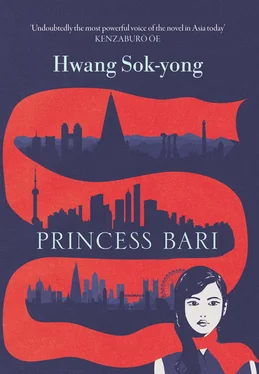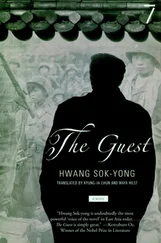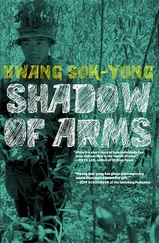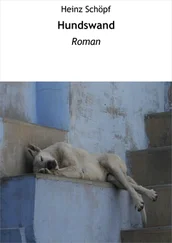“Did you hear what I said, child?” Grandmother asked me.
“No … the last thing I heard you say was that Princess Bari was the seventh daughter.”
“That’s right. The six older daughters appear one after the other and burst into tears: ‘Our poor mother! Our poor father!’ The queen turns to them and says: ‘Alas, another girl! Your father, His Majesty the King, will collapse from anger, so go to the stonemason and ask him to carve us a stone chest. Place the baby inside of it. Then tiptoe all the way to the Dragon Swamp, slowly, slowly, and toss it in!’ But those foolish girls take off running, the heavy stone chest hoisted onto their shoulders, their backs, their heads. They keep pace by chanting, Uh-gi yung-cha! Uh-gi yung-cha! When they reach the swamp, a flute plays. It is the voice of Heaven. Sky and Earth stick together, blocking their way. They call out: ‘O Heavenly Lord! If you mean to kill us, then kill us. If you mean to strike us down, then strike us down. We’ve done nothing wrong. We are at the service of the king and are doing his bidding.’ Heaven and Earth split apart again. They toss the chest into the swamp and say: ‘Ah, now we can never again return to the palace.’ ”
“Grandma, I thought you said she was abandoned in a forest, like me.”
“Sometimes it’s a forest. Other times it’s a river, or the sea. Sometimes she’s saved by a crane, and other times by a magpie. Sometimes, a golden tortoise appears and saves her.”
“And after that she’s raised by an elderly hermit couple?”
“Well, sometimes she’s rescued by the Dragon King in his underwater palace. Then, after she’s all grown up, the king and queen become very ill, and all their subjects fall ill too. What’s to be done? A fortune teller is consulted, and they’re told that the only way they’ll be saved is if the seventh daughter they abandoned, Princess Bari, returns. A girl is brought forth from the mountains, but they’re not sure that it’s her and not some evil spirit or ghost impostor. The girl takes a few tiny steps forward and says: ‘Mother, there’s proof.’
‘What proof?’ the queen asks.
‘The blood on the door is still wet from when you pricked my ring finger as a baby and left a mark. I’ll prick my finger again, and we’ll see if the blood matches.’
“The queen agrees, so the girl pricks her ring finger, wincing from the pain, and adds a drop to the blood on the papered door. Sure enough, it congeals together, proving it is the same blood. The queen exclaims: ‘ Aigo! You’ve grown up as bright as the full moon and as strong as the king of the beasts! Was it the water? Was it the sunshine? Was it the dew? How did you grow up so well?’ ”
“I know what happens next! She has to bring back the life-giving water to save her parents and the people of the world, right?”
“Clever little Bari! I told you the story once, and you remembered the whole thing. So they tell her, if you go to where the sun sets over there in the western sky, all the way to the ends of the Earth, you’ll find the life-giving water. While Bari journeys through the ailing country, across the ocean and over the mountains, she is helped by gods and spirits — but she also has to wash other people’s clothes and weed their fields and do all sorts of lowly tasks. She repels ghosts and travels to Hell. She saves the sinners who are trapped there, and when she reaches the western sky there is a guardian totem pole there, a jangseung , waiting for her. Bari loses a bet with the totem pole and has to marry him and have his children and work for him for nine long years before he will give her the life-giving water. She endures all manner of hardship there at the ends of the Earth, and on her journey back she sees the boats that travel to the other world. And on the decks of those boats are souls burdened with their karma.”
“Grandma, you left out the part about how she gets the life-giving water!”
“Yes, yes, you’re right. Granny forgot. Bari asks the jangseung for the water, and that rat tells her: ‘You’ve had it all along. It’s the same water we use every day to cook rice and do laundry.’ ”
“So Princess Bari did all that work for nothing?”
“No, no. She gained the ability to recognize which water gives you eternal life.”
“What does that mean?”
“You’ll understand when you’re older. When she returns and sprays the life-giving water on her parents, they recover and the whole world gets better again. Ever since then, Old Grandmother Bari has lived inside of us. She’s inside me and inside you, too.”
I heard the story of Princess Bari many times while lying next to my grandmother in the dark. Back then I used to dream all kinds of dreams and, as I mentioned before, other than the one in which my mother and two sisters stare at me silently, none of them left much of an impression on me — except a dream I had about the Great Princess Bari. But I don’t remember for certain whether I had that dream when I was living in the dugout hut with Grandmother, or after she passed away.
*
There are times when I am in the middle of a dream and I think to myself, I’m dreaming right now , even as I keep following the course of the dream. When the Great Princess Bari appeared in my dream, I was strolling along a wide, empty beach. At the other end of the beach, on the white sand devoid of any tree and under the blue sky devoid of any cloud, stood a single house. It had a huge tiled roof and latticed windows and doors. The next thing I knew, I was inside. Pillars with a circumference as wide as my arms could reach around stood in a row. Sunlight slanted down into a broad corridor that looked like a palace or temple that I would later come to visit after I’d left the North for good, but stone walls blocked the light from reaching any further. It was so dark that I didn’t move from where I stood, but then the room began to brighten, as if someone had turned on a small lamp, and the faint, glimmering light spread up the walls all the way to the ridgepole at the top of the high ceiling. I took a step forward, and then another step. Someone appeared in the light. It wasn’t a golden light, rather a bright glare like the sun on a summer day, and in it hovered the white silhouette of a person. I wasn’t sure if it was her hair colour or just the light, but her hair was all white and held in an old-fashioned chignon with a long hairpin, and she wore white mourning clothes. The countless pleats in her long, loose skirt swayed as if stirred by a stray breeze. Her face was white too; I could not tell whether she was old or young, but I could sense that she was smiling gently. The figure, which floated there impassively, vanished when I took a step back and reappeared when I took a step forward. But when I stepped into the room again later, she was gone. I committed the vision to memory. I never saw her again, but that was because Chilsung and my grandmother would sometimes appear in my dreams instead to help me, even after I’d travelled to a faraway country.
*
Five days passed, and then months passed, and still Father had not returned. Grandmother had told me a few days after he left: “He’s gone to Puryong to bring back the family.” But I’d already known. It was dangerous enough for him to have escaped when he was being punished for our uncle’s crimes, but it went without saying that going back there for the rest of the family was just plain stupid. Yet what could we do? Had I been in his shoes, I would’ve done the same.
When summer began, Grandmother and I started foraging for mushrooms and medicinal herbs deep in the mountains for us to eat with the grain we received from the farmer’s family. We would each fill a sack with bellflower and bracken, which grew in abundance, and lingzhi mushrooms, which were called the “mushroom of immortality” and earned us the most money when sold. We also collected chaga and neungi mushrooms, and a type of medicinal rhubarb, and peonies.
Читать дальше












